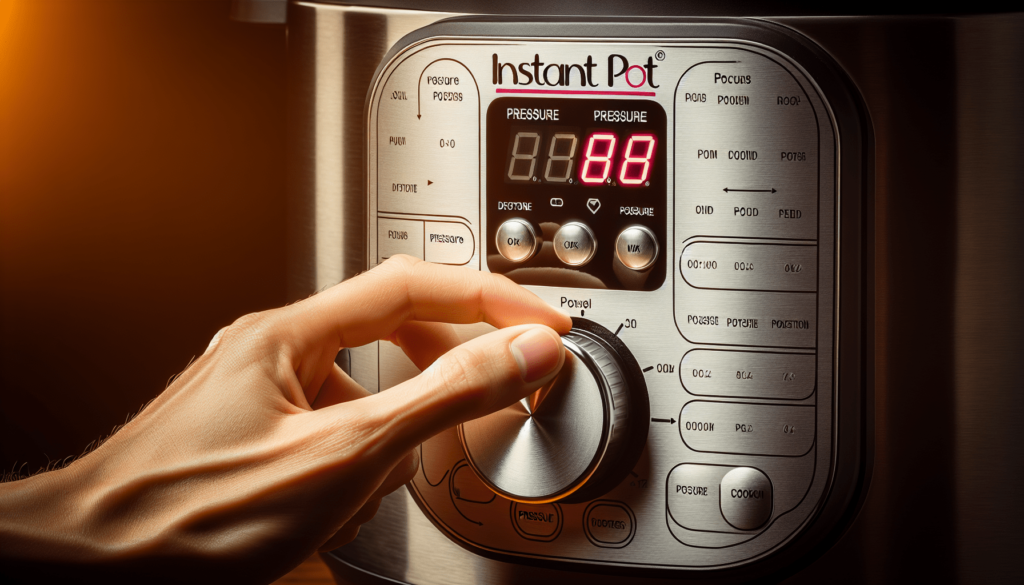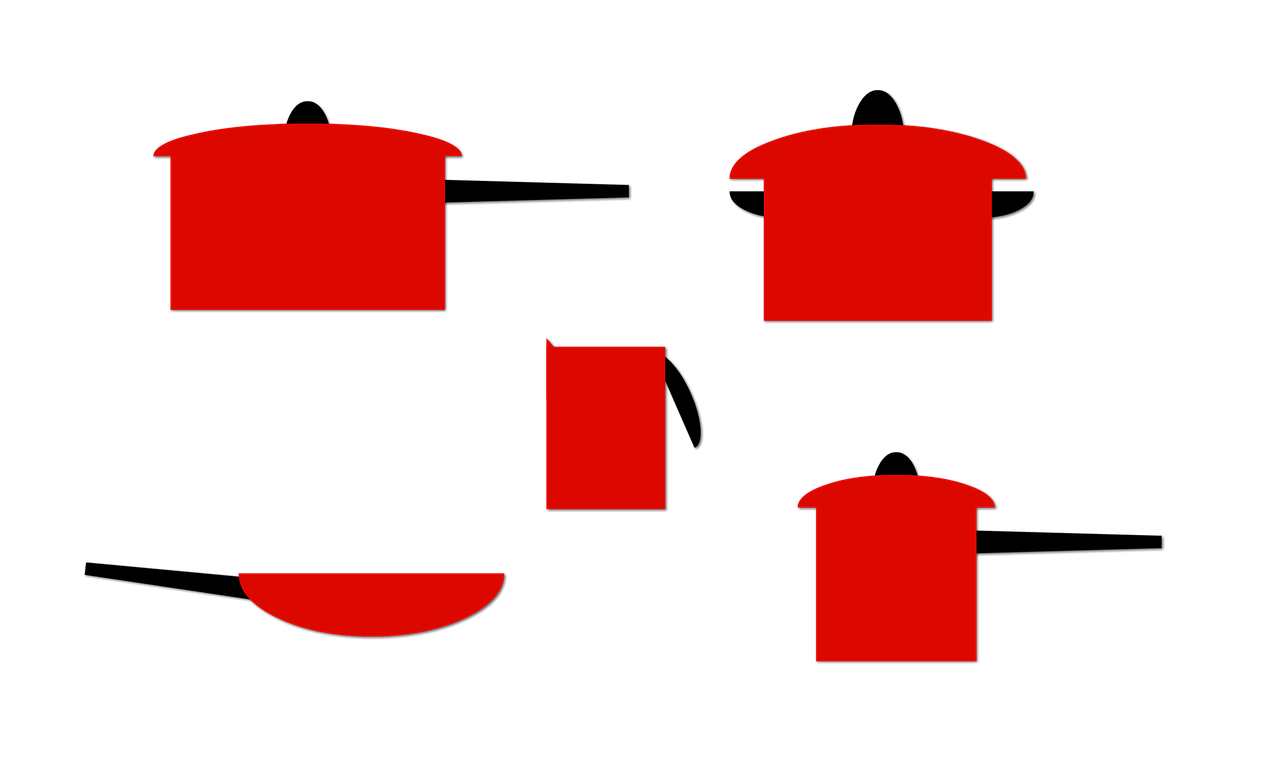Are you a beginner in the world of Instant Pots and finding yourself a little perplexed by all the buttons and settings? Don’t worry, we’ve got you covered! In this article, we will guide you through the simple process of adjusting the pressure level on an Instant Pot. Whether you want to whip up a delicious batch of tender meat in minutes or cook your favorite rice perfectly every time, understanding how to adjust the pressure level will be your key to culinary success. So, let’s get started and unlock the full potential of your Instant Pot!
Why Adjusting Pressure Level is Important
Adjusting the pressure level on your Instant Pot is crucial for achieving optimal cooking results. By understanding the different pressure levels and customizing the cooking process, you can ensure that your food is cooked to perfection every time.
Understanding the Different Pressure Levels
The Instant Pot offers different pressure levels to accommodate various types of food and cooking methods. It is essential to familiarize yourself with these pressure levels so that you can choose the right one for your recipe.
Customizing the Cooking Process
Adjusting the pressure level allows you to customize the cooking process according to your preferences. Whether you prefer your food to be tender and succulent or crispy and well-done, selecting the appropriate pressure level can help you achieve the desired texture and taste.
Achieving Perfect Cooking Results
By adjusting the pressure level, you can achieve consistent and even cooking results. Whether you’re cooking meat, vegetables, or grains, the right pressure level ensures that your food is cooked thoroughly and retains its natural flavors and nutrients.
Identifying Pressure Level Options
Before adjusting the pressure level, it is essential to familiarize yourself with the options available on your Instant Pot.
Locating the Pressure Level Button
The pressure level button is typically located on the control panel of the Instant Pot. It may be labeled as “Pressure Level” or “Pressure Cook.”
Reading the Pressure Level Indicator
The Instant Pot features a pressure level indicator that displays the current pressure level. This indicator helps you identify the selected pressure level and monitor it throughout the cooking process.
Understanding the Available Pressure Level Options
The Instant Pot generally offers two pressure level options: high pressure and low pressure. Each pressure level is suitable for specific types of food and cooking techniques.

Adjusting Pressure Level
Adjusting the pressure level on your Instant Pot is a straightforward process that ensures your food is cooked to perfection.
Selecting the Desired Cooking Program
Before adjusting the pressure level, you need to select the appropriate cooking program for your recipe. This could be “Pressure Cook,” “Manual,” or any other program that operates under pressure.
Pressurizing the Instant Pot
Once you have selected the cooking program, you need to allow the Instant Pot to build up pressure. This typically involves sealing the lid and ensuring the pressure release valve is closed.
Using the Pressure Level Button
To adjust the pressure level, press the pressure level button on the control panel. Each press of the button typically cycles through the available pressure options.
Adjusting the Pressure Level Manually
In some instances, you may need to adjust the pressure level manually by using the “Manual” or “Pressure Cook” button. This allows you to select the specific pressure level required for your recipe.
Pressure Level Settings for Different Food
Understanding the appropriate pressure level settings for different types of food is crucial for achieving the best results.
High Pressure for Most Food
High pressure is the default setting for most Instant Pot recipes. It is ideal for cooking a wide range of foods, including meats, soups, stews, and beans. High pressure ensures that food is cooked thoroughly and rapidly, making it a versatile option.
Low Pressure for Delicate Food
Low pressure is recommended for delicate foods such as seafood, eggs, and some vegetables. It provides a gentler cooking environment, allowing these foods to retain their texture and prevent overcooking.
Customizing Pressure Level for Specific Recipes
Certain recipes may call for a specific pressure level to achieve the desired results. It is essential to follow the recipe instructions and adjust the pressure level accordingly to ensure the best outcome.

Safety Considerations
When adjusting the pressure level on your Instant Pot, it is crucial to prioritize safety and avoid potential risks.
Understanding Safety Features
Take the time to familiarize yourself with the Instant Pot’s safety features, such as the pressure release valve and the locking lid. These features are designed to prevent accidents and maintain a safe cooking environment.
Avoiding Overfilling the Instant Pot
To prevent potential hazards, it is vital not to overfill the Instant Pot. Follow the manufacturer’s guidelines regarding the maximum fill line to ensure proper pressure regulation and avoid clogged valves.
Releasing Pressure Safely
Before opening the Instant Pot after cooking, ensure that the pressure has been released completely. Follow the recommended methods for releasing pressure, such as the natural release or using the quick release valve, and wait until the float valve drops down.
Common Mistakes to Avoid
To achieve optimal cooking results, it is important to avoid common mistakes when adjusting the pressure level on your Instant Pot.
Incorrect Pressure Level Selection
Choosing the wrong pressure level for a recipe can lead to undercooked or overcooked food. Carefully read the recipe instructions and select the appropriate pressure level to ensure the desired outcome.
Failure to Adjust Pressure Level
Neglecting to adjust the pressure level or using the default setting for all recipes may result in inconsistent cooking results. Take the time to adjust the pressure level according to the specific needs of each recipe.
Ignoring the Pressure Level Indicator
The pressure level indicator is there to help you monitor the selected pressure level throughout the cooking process. Ignoring or misinterpreting this indicator can lead to poorly cooked food. Pay close attention to the indicator and verify that it corresponds with your desired pressure level.

Tips for Best Results
To enhance your cooking experience with the Instant Pot and achieve the best results when adjusting the pressure level, consider the following tips:
Following Recipe Instructions
Always refer to the recipe instructions when it comes to adjusting the pressure level. Pay attention to any specific recommendations for the desired pressure setting.
Experimenting with Different Pressure Levels
Don’t be afraid to experiment with different pressure levels for recipes that allow flexibility. Try using both high pressure and low pressure to determine which works best for your taste preferences.
Considering Food Texture and Cooking Time
When adjusting the pressure level, consider the texture and cooking time of the food you are preparing. Delicate foods may require lower pressure levels and shorter cooking times, while tougher cuts of meat may benefit from higher pressure levels and longer cooking times.
Troubleshooting Pressure Issues
If you encounter any pressure-related issues while using your Instant Pot, here are some troubleshooting tips:
Inconsistent Pressure Level
If you notice that the pressure level fluctuates excessively during cooking, ensure that the sealing ring is properly in place and that the steam release valve is not obstructed. Additionally, make sure the Instant Pot is securely closed and that no steam is escaping from the sides.
Instant Pot Not Reaching the Desired Pressure
If your Instant Pot fails to reach the desired pressure level, check if the sealing ring is properly seated and if the lid is securely closed. Also, ensure that the pressure release valve is in the correct position. If the issue persists, consult the user manual or contact Instant Pot customer support for further assistance.
Too Much Pressure and Liquid Loss
If you experience excessive pressure and liquid loss during cooking, it could be due to overfilling the Instant Pot or not having enough liquid in the recipe. Ensure that you do not exceed the maximum fill line and follow the recipe’s liquid requirements for optimal results.

Cleaning and Maintenance
Proper cleaning and maintenance of your Instant Pot are essential for its performance and longevity.
Properly Cleaning the Pressure Release Valve
The pressure release valve is a critical component of the Instant Pot. After each use, remove the valve and clean it thoroughly to remove any food particles or residue that may have accumulated.
Inspecting and Replacing Sealing Ring
Regularly inspect the sealing ring, which helps create an airtight seal during cooking. If the sealing ring shows signs of wear or damage, it is important to replace it to ensure proper pressure regulation.
Cleaning the Instant Pot Exterior
Keep the exterior of your Instant Pot clean by wiping it with a soft cloth or sponge. Avoid using abrasive cleaners or scrubbers that could damage the surface.
Seeking Additional Support
If you encounter any difficulties or have further questions regarding adjusting the pressure level on your Instant Pot, there are resources available to help.
Referring to the Instant Pot User Manual
The Instant Pot user manual provides comprehensive instructions and guidelines for using and adjusting the pressure level on your specific model. Consult the manual for detailed information and troubleshooting advice.
Contacting Instant Pot Customer Support
If you require additional support or have specific questions about adjusting the pressure level on your Instant Pot, do not hesitate to reach out to Instant Pot’s customer support. They can provide personalized assistance and guidance to ensure your cooking experience is enjoyable and successful.




